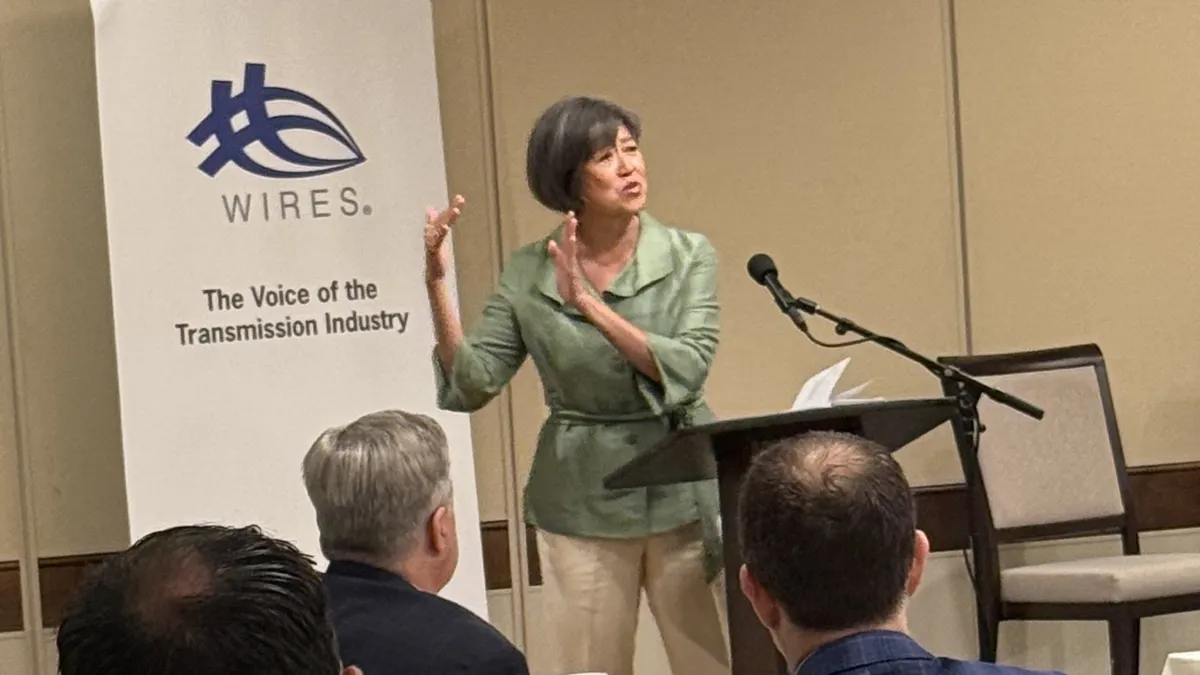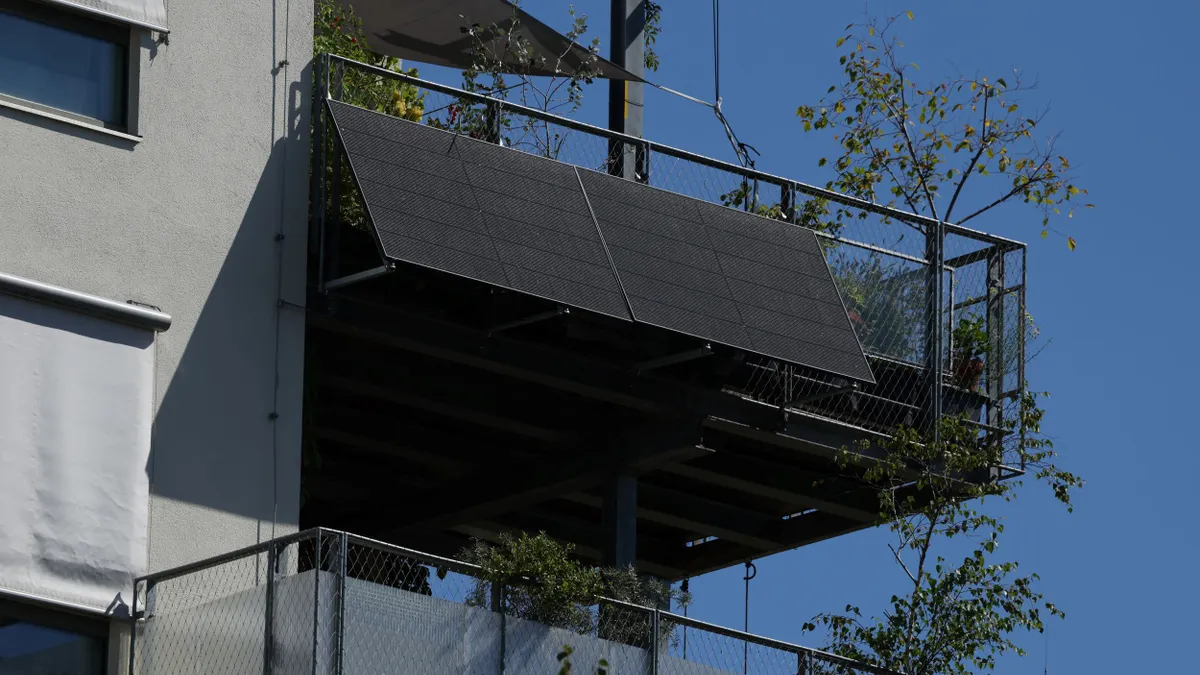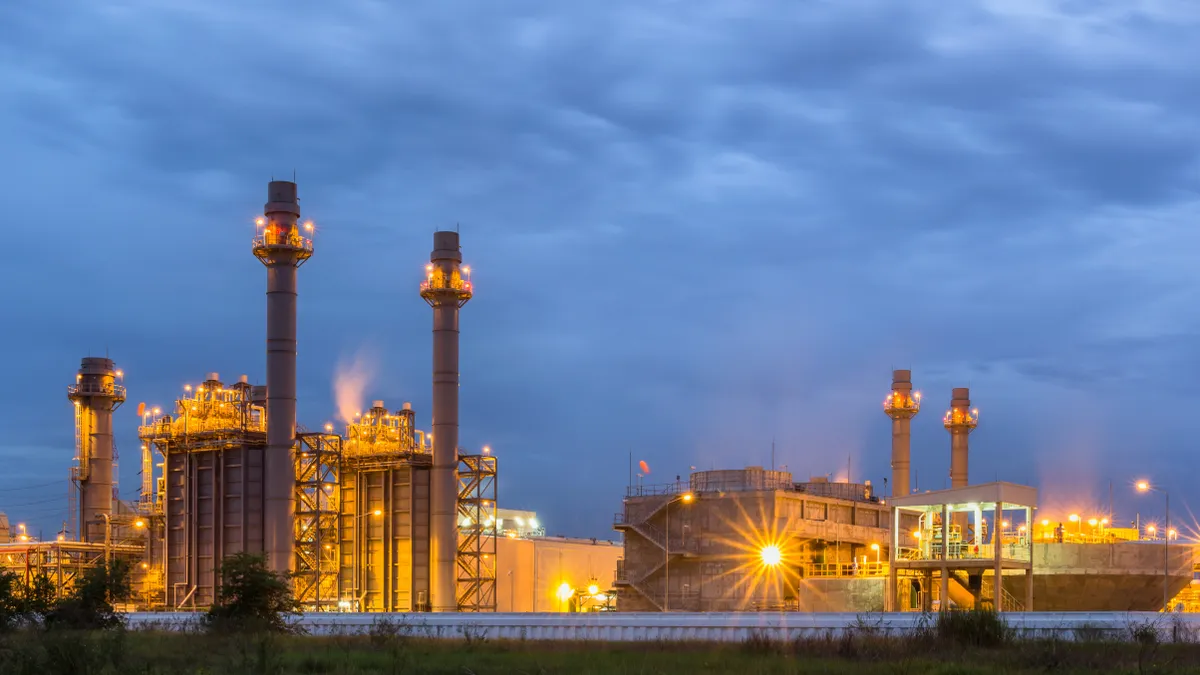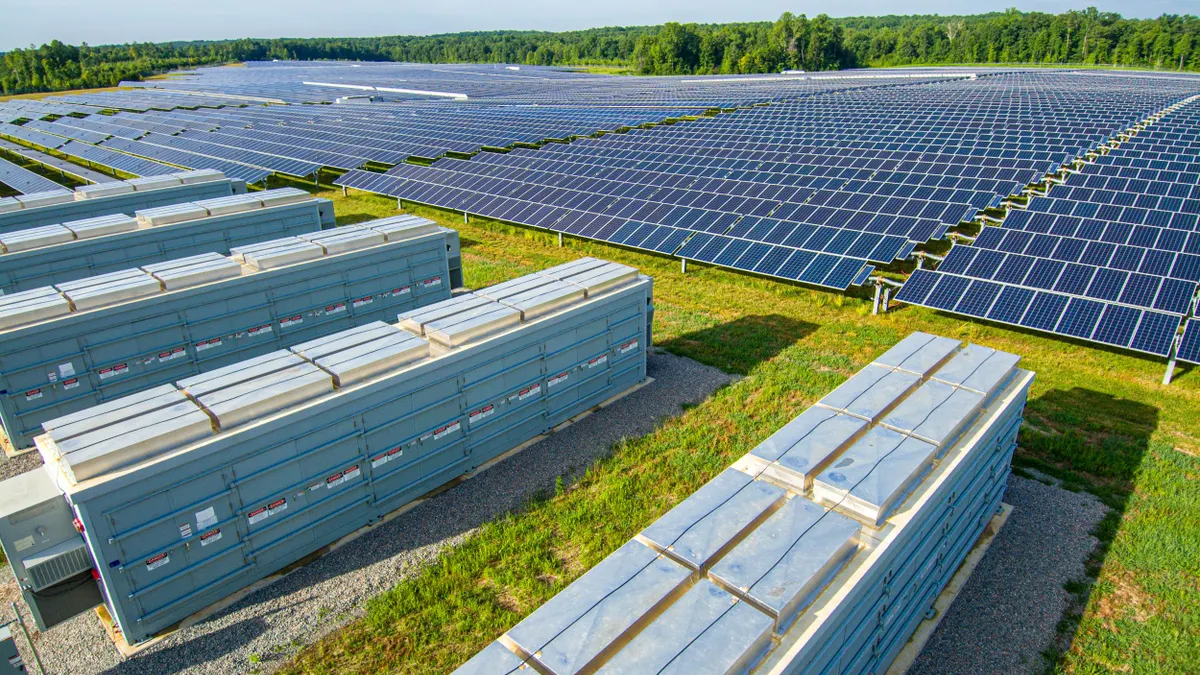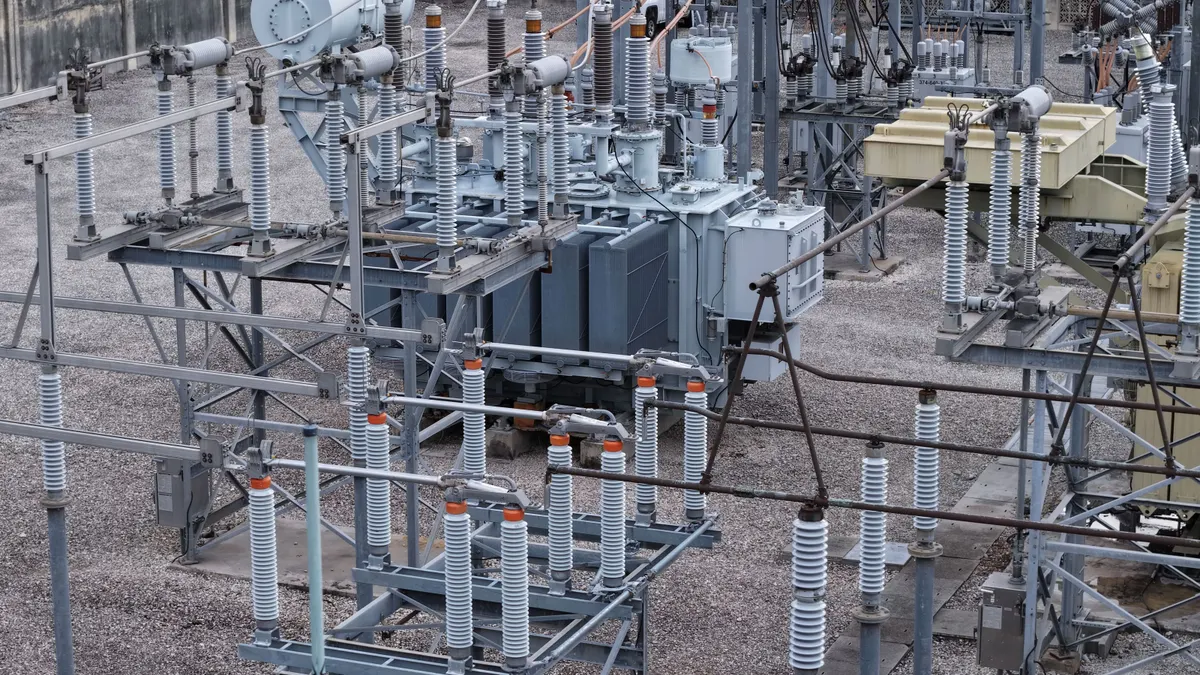There is a “misalignment” in grid interconnection and transmission planning processes that could harm competitive power markets, according to Judy Chang, a member of the Federal Energy Regulatory Commission.
Amid surging electric demand forecasts, the interconnection logjam has led grid operators to propose short-term solutions, Chang said Thursday at a meeting held in Woodstock, Vermont, by WIRES, a transmission-focused trade group.
The PJM Interconnection, the Midcontinent Independent System Operator and the Southwest Power Pool have proposed one-time processes that would create a fast-track interconnection review for planned generating projects that meet certain criteria. FERC approved PJM’s plan earlier this year over the opposition of some renewable energy companies that contend selected projects will be able to unfairly jump ahead of others that have been waiting in interconnection queues.
“I don't really love short-term fixes,” Chang said. “I really prefer to have better processes — fair and competitive processes — so that generators interconnecting know the rules of the game.”
Chang said various issues are coming to a head at the same time, including disputes over interconnection cost allocation and the system’s ability to upgrade interconnection infrastructure and bring on new generation as fast as possible.
Those issues could affect the future of competitive power markets, Chang said, noting that some states are considering withdrawing from regional transmission organizations.
“I worry about how much states might want to compromise … the open access and competitive access to transmission and competitive markets by pulling back and finding internal solutions, or by complaining about competitive markets not meeting the challenge of the day,” she said.
Getting generation online as quickly as possible is a key priority, according to Chang.
“We should plan, design, permit — all faster,” Chang said. “So I am a big supporter of permitting reform on all infrastructure, but also on transmission. So if there are things that we can do, without compromising [our] understanding of the impact on environment and people, I think we should do them.”
On the issue of building transmission, Chang said she was aware of the financial needs of transmission developers.
“I'm very sensitive to your needs and the capital markets’ needs and the investors’ needs and how you obtain access to capital for infrastructure necessary to be built,” Chang said. “But I'm also very sensitive to the needs of consumers.”
Increasingly, consumer groups and some states have been complaining about the cost of transmission, Chang said.
“I've worked enough in the transmission sphere of business to know that while we want to build infrastructure and beneficial infrastructure, if we go overboard [and] consumers start complaining, this whole thing is going to backfire,” she said.
Chang urged utilities and transmission developers to ensure that consumers understand the value of the infrastructure they build.
Also, Chang urged utilities to be cautious when they seek incentives from FERC for building transmission.
“Build what you need to build and what you see as best value for the consumers in the longer term, but don't be greedy,” she said.
In an effort to provide value to consumers, utilities should proactively consider using advanced transmission technologies — such as dynamic line ratings, advanced power flow controls and topology optimization — to squeeze value out of the existing grid, according to Chang.
Chang said she is generally not a fan of regulators mandating what utilities should do.
“I don't believe that government is in the best position to know exactly what to mandate, how to mandate, how much money you should spend on what technology,” Chang told the WIRES audience. “I feel like that is your job.”
Regardless of political point of view, the United States needs more transmission capacity, according to Chang.
“Transmission is the network that needs to support both generation and load, and whether it's load growing, whether it's wind and solar growing — it doesn't matter, we have to build the highways to connect them,” Chang said.
FERC independence
Although the Trump White House has claimed authority over independent agencies such as FERC, Chang said there has been no political interference in the commission’s decisions.
“We continue to do exactly what we've always done … which is we make sure that we make judgments on each docket on its own, based on the evidence before us, in the most legally durable way,” Chang said. “I feel confident the current set of commissioners are committed to making sure that we do our jobs the way Congress intended us to do our jobs.”
The agency has, however, lost staff due to early retirements and buyouts and is in the midst of a hiring freeze, she said. FERC Chairman Mark Christie has said he expects the agency will lose about 9% of its staff by the end of the fiscal year.
With a high number of open dockets at FERC, agency staff is stressed, according to Chang.
“There's a lot of pressure on staff at the moment, so I just asked you to have some patience if you come in and talk to staff or try to schedule meetings, or are hoping that we can work faster,” she said.



